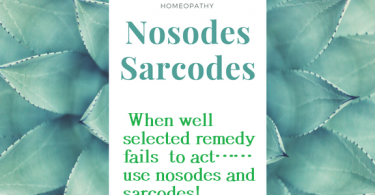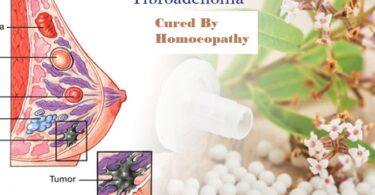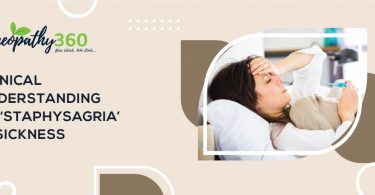
ABSTRUCT: Varicocoele is one of the male genital diseases. In varicocoele, there is presence of visible and palpable testicular veins due to reverse flow of blood into the pampiniform plexus in the scrotum. It may cause male infertility and low sperm count. Homoeopathy can treat mild to moderate type of varicocoele.
KEYWORDS: genital diseases, varicocoele, testicular vein, Murphy’s Repertory.
INTRODUCTION:
Varicocoele – A varicocoele is a varicose dilatation of the veins draining the testis.
Surgical anatomy
The veins draining the testis and the epididymis form the pampiniform plexus. The veins gradually join each other as they traverse the inguinal canal and at, or near, the inguinal ring, there are only one or two testicular veins, which pass upwards within the retro peritoneum. The left testicular vein empties into the left renal vein while the right empties into the inferior vena cava below the right renal vein. The testicular veins usually have valves near their terminations, but these are sometimes absent. There is an alternative (collateral) venous return from the testes through the cremasteric veins, which drain mainly into the inferior epigastric veins.
Aetiology
- Varicocoeles are common, affecting perhaps 15–20% of adult males and 90% are left sided, reflecting the proximal venous anatomy.
- Most varicocoeles are idiopathic.
- They are unusual in boys and typically develop during late childhood and adolescence.
- In some cases, the dilated vessels are cremasteric veins and not part of the pampiniform plexus.
- The usual cause is absence or incompetence of valves in the proximal testicular vein.
- Obstruction of the left testicular vein by a renal tumor or nephrectomy is a cause of varicocoele in later life; characteristically, in such cases the varicocoele does not decompress in the supine position.
Clinical features
- While most varicocoeles are asymptomatic, those that are symptomatic tend to present in adolescence or early adulthood, when there may be an annoying dragging discomfort that is worse on standing at the end of the day.
- This presumably reflects distension of the testicular veins.
- When examined in the erect position, the scrotum on the affected side hangs lower than normal; on palpation, with the patient standing, the varicose plexus feels like a bag of worms.
- There may be a cough impulse.
- If the patient lies down the veins empty by gravity and this provides an opportunity to ensure that the underlying testis is normal to palpation.
- In long-standing cases the affected testis is smaller and softer than its fellow, owing to a minor degree of atrophy.
- Ultrasonography can be helpful in the diagnosis of small varicocoeles, and in older men with an apparently recent onset of varicocoele, ultrasonography of the kidneys is important in excluding a left renal tumour.
- Grading of the varicocoele is possible, with a grade I varicocoele being impalpable (i.e. observed only on ultrasound), grade II being palpable and grade III being visible.
Varicocoele and spermatogenesis
Of all the possible causes of primary infertility, oligozoospermia (reduced numbers of sperm in the ejaculate) is one of the most difficult to treat. Because varicocoeles are relatively common, some men with oligozoospermia will have a varicocoele, and it is tempting to blame this for the infertility. Certainly, the varicocoele will tend to ‘warm’ the testis, which is usually around 2.5ºC below rectal temperature, and there is conflicting evidence regarding the effect of this temperature difference upon spermatogenesis. [1]
HOMOEOPATHIC APPROACH FOLLOWING HOMOEOPATHIC MEDICAL REPERTORY BY ROBIN MURPHY
Rubric: Chapter 46: Male
VARIOCELE, spermatic cord – aesc., arn., aur., bell. , calc., carb-v., colch., coll., crot-h., fl-ac., ham., lach., lyc., merc-i-r., nux-v., osm., ph-ac., podo., puls., ruta., sep., sil., sulph., tab.
Strain, following a – ruta. [2]
PRESENTING SYMPTOMS OF ABOVE MEDICINES IN LOTUS MATERIA MEDICA BY ROBIN MURPHY.
Symptoms covers not only the Varicocele but also male genital organs as a whole.
AESCULUS HIPPOCASTANUM: it indicated in general venous stasis, everything slow down, digestion, heart, and bowel. Engorgement of haemorrhoidal veins with backache and absence of constipation. Walking aggravates all symptoms. Worse in morning and afternoon, after meals, from any kind of motion or while standing, better in cool and open air, bathing and from continued exertion.
ARNICA MONTANA: indicated when patient having sore pain, bruising and swelling associated with trauma, surgery or overexertion. Feeling that everything the person lies on is too hard. Impotence from sexual excess or abuse. Phimosis from friction. Seminal emission during caress. Haematocele.
AURUM METALLICUM: Indicated when pain and swelling of testicles. Orchitis, Chronic indurations of testicles. Atrophy of testicles in boys. Hydrocele of children. Epididymitis, sarcocoele. Sexual desire greatly increased. Nocturnal emission and pollutions. Flow of prostatic fluid, with flaccidity of penis. It produces rushes of blood and haemorrhages. Patient has hopelessness, profound depression, tendency to suicide and longing for death. Worse from sunset to sunrise.
BELLADONNA: indicated when accompanied by redness, heat and throbbing, sharp, cutting, shooting pain. Severe neuralgic pain comes and goes suddenly fullness and congestion with swelling, testicle hard, drawn up inflamed. Nocturnal sweat of genitals. Flow of prostatic fluid. Desire diminished. Soft painless tumour on glans. Worse from touch, pressure, motion, checked sweat. Better form bending backward, semi erect, standing.
CALCAREA CARBONICUM: Indicated when patient having burning with seminal emission. Sex, followed by profuse weakness, vertigo, irritability, lameness of back and knees, headache and sweat. Itching and burning in genitals. Seminal discharge premature. Hydrocele of children. Worse from cold, wet weather, from mental or physical exertion, from stooping or lifting. Worse from pressure of clothes. Better from dry weather, lying down on painful side, on back.
CARBO VEGETABILIS: acts on venous circulation and capillaries, blood seems stagnate, causing blueness, coldness and ecchymoses, icy coldness of part, Worse from over lifting, pressure of clothes, damp weather, better from elevating feet, cold weather and fanning constantly. Discharge of prostatic fluid, while straining at stool. Itching and moisture at thigh near scrotum. Seminal discharge too soon during sex, followed by roaring in head. Swelling of testes from metastasis of mumps.
COLCHICUM AUTUMNALE: indicated when parts are red, hot, swollen. Tearing pain. Oedema of scrotum
Worse from motion, touch, vibrations, from cold damp weather from stretching, checked sweat, from any exertion mental or physical. Worse at night and evening. Better from bending forward, rest, doubling up, sitting after stool, stooping. Patient loathes the smell or sight of food.
COLLINSONIA CANADENSIS: indicated when patient having varicocele with rectal symptoms, venous engorgement, and portal congestion, congestion of pelvic organs especially anus, rectum and uterus. Sensation of constriction and sticks in rectum. Worse from slightest mental emotion or excitement, cold and better from heat, morning.
CROTALUS HORRIDUS: indicated in low septic state, haemorrhages from every part of body. Dark and bluish parts. Sexual instinct increased with entire relaxation of penis. Sharp cutting in glans, from jar, exertion, better from rest and motion, from light. Worse in morning, on waking, from lying on right side. Symptoms are worse on the right side.
FLUORICUM ACIDUM: Indicated when deep, destructive process, bedsores ulcerations, varicose veins and ulcers present. Burning in urethra, increased sexual desire in old men. Enjoyment excessive. Violent erections at night. Oily pungent smelling sweat on genitals. Swollen scrotum, varicocoele. Worse from warmth, heat of room, from night, morning, warm drink. Better from cold, while walking, from cool bathing, rapid motion, and sort sleep.
HAMAMELIS VIRGINIANA: Act on veins especially of rectum, genitals, limbs and throat, producing congestion. Pain in spermatic cord, running into testes. Orchids intense soreness and swelling. Worse touch. Testicles enlarged, hot and painful. Varicocoele. Severe neuralgic pain in testicles. Profuse, cold sweat on scrotum. Capillary stasis. Worse from injury, bruises, pressure, from warmth, moist air, rainy weather, from jar, touch, motion and exertion.
LACHESIS MUTA: strong sexual desire without physical power. During sex the emission is tardy or does not occur at all. Lascivious ideas without erection of penis. Prepuce thickened. Semen with pungent odour. Ill effect of masturbation. Worse from sleep and after sleep, morning ,from slight touch or pressure of clothes around neck, waist, from suppressed discharges, standing, stopping, motion and from hot drinks. Better from appearance of discharges, warm application, open air, hard pressure.
LYCOPODIUM CLAVATUM: indicated when patient having weakness of digestion and right side affection. Lacks vital heat and poor circulation. Pain comes and goes suddenly.
MERCURIUS IODATUS RUBER: indicated when complaint cause by exposure to wet, washing floor, and weather changes. Sarcocoele of left testicle, stubborn suppurating buboes worse after sleep, from touch and pressure.
NUX VOMICA: Indicated to nervous, excitable and irritable person with sensitive to all impression.
Constrictive pain in testicles, premature ejaculation, and emission from high living, penis becomes relaxed during an embrace. Bad effect of onanism and sexual excess. Worse from pressure of clothes at waist, early morning and open air, better form strong pressure, and from free discharges.
OSMIUM: Indicated when patient having steady aching in glans penis, pain in testis and spermatic cord, violent pain on the point of penis and prepuce. Erection evry morning, earlier and harder, pain in testicle preventing sleep. Generally worse from coughing, talking, by touch, and riding.
PHOSPHORICUM ACIDUM: indicated when patient having weakness and pollutions after sex, oedema of prepuce and swollen glans penis, nightly emission with lascivious dreams, seminal vesiculitis. Sexual power deficient. Testes tender and swollen. Weak relaxed genitals, during sex, preventing emission. Weakness and mental debility follow by physical debility. Generally worse from loss of vital fluid, from talking, sitting, standing and from lifting. Better from warmth, after short sleep.
PODOPHYLLUM PELTATUM: indicated When patient having genital complaints with rectal troubles. It produced torpidity of the liver, portal engorgement with tendency to haemorrhoids, hypo-gastric pain, and fullness of superficial veins. Worse from motion, walking, early morning 2 to 4 a.m. better from pressure, lying down, lying on abdomen, stretching in bed.
PULSATILLA NIGRICANS: indicated when patient having hard, sticking pains in left spermatic cord and testes. Dull pains in testes, distressing erection, soon subsiding. Pain in penis on walking, worse on urinating. Generally worse by warmth, at night, on urinating, and on walking. Better in open air and rubbing, and scratching.
RUTA GRAVEOLENS: indicated after ill effect of bruises, factures, and carrying heavy weights, sprain, over use of tendons, worse from over exertion, injury from lying down, sitting, pressure on edge, stooping, ascending and descending steps, better from lying on back, warmth, motion, rubbing and scratching.
SEPIA OFFICINALIS: indicated when patient having venous stasis, offensive perspiration on scrotum. Genitals cold, gleet, discharge from urethra only during night, no pain sexual desire increased. Complaints after sex. Impotency. Condylomata surrounding head of penis. Generally worse from sitting, standing, kneeling, jarring, stooping, from touch, ascending, rubbing, lifting, scratching, from washing clothes, before thunderstorm. Better from sitting with leg crossed, by exercise, dancing, vigorous motion.
SILICEA TERRA: indicated in hydrocoele, itching moist spots on scrotum, painful eruption, burning and soreness of genitals with eruption on inner surface of thighs. Sexual weakness . Nocturnal emission. Extreme exhaustion after sex. Worse from damp, lying on left, cold air and draft, better from warm room and wraps.
SULPHUR: Indicated in hydrocele, testes hang low, induration of testes, stitches in penis, penis cold, prepuce stiff, hard like leather with copious sigma, causes itching, fetid sweat on genitals. Itching of genitals when going to bed. Burning pain and itching is characteristic symptom of remedy. Generally, worse from standing, from warmth of bed, better from open air, motion, walking and dry heat.
TABACUM: Indicated for varicocoele and hyperesthesia and neuralgia of penis, genital organs flabby, no erections or little sexual desire. Nocturnal emissions. generally worse from motion of boat, riding, lying on left side, from pressure, better from walking, cold, open air. [3]
CONCLUSION:
As there is no particular aetiology in varicocoele, homoeopathy is helpful. Results shows that surgery is not the solution as recurrence is there. Only homoeopathy can correct the altered physiology and bring back health. If there is major pathology then surgery or other alternative treatment is required. Mild to moderate condition is curable in homoeopathy.
References:
[1] Bailey and Love’s, Short Practice of Surgery, 27th Edition, CRC Press Taylor and Francis group. [2] Murphy R. Homoeopathic Medical Repertory, 2nd Edition, B. Jain Publishers. [3] Murphy R. Lotus Materia Medica, 2nd Edition, B. Jain PublishersAbout the authors
| Dr Falguni Patel M.D. (Hom), Professor, H.O.D Department of Forensic Medicine & Toxicology, Jawaharlal Nehru Homoeopathic Medical College, Parul University, Vadodara. | Dr Srabani Pal M.D. (Hom), Associate Professor, H.O.D, Department of Anatomy , Jawaharlal Nehru Homoeopathic Medical College, Parul University, Vadodara. |





